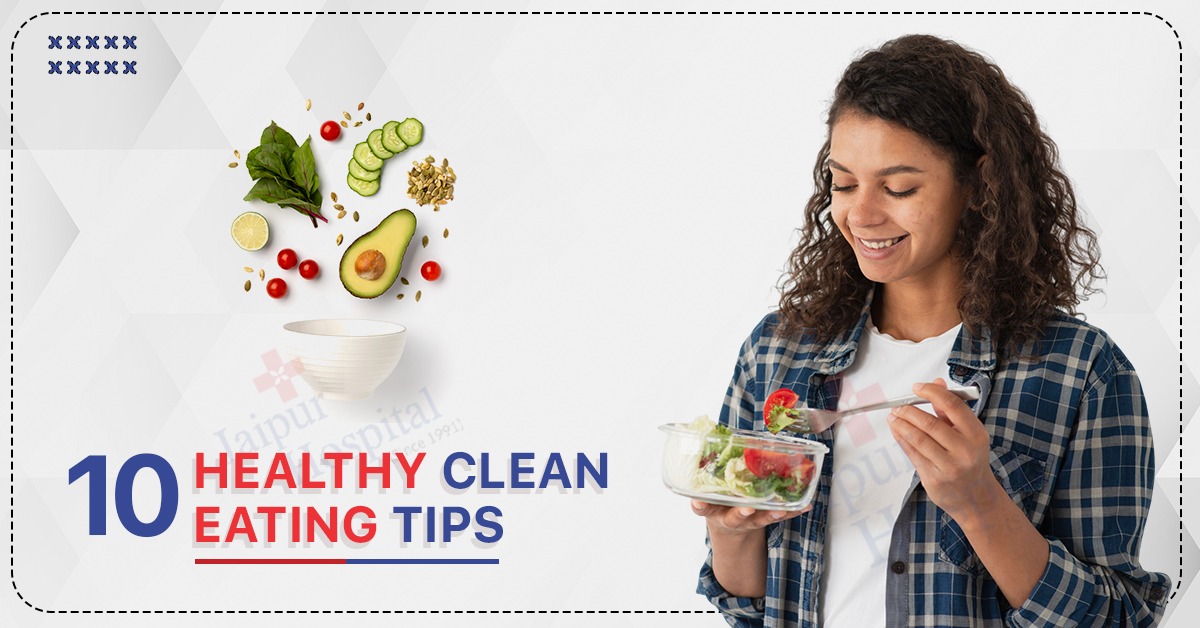Healthy clean eating combines the principles of healthy eating and clean eating to create a holistic approach to nutrition and overall well-being. It goes beyond simply focusing on the nutritional value of foods and also takes into account their quality, sourcing, and preparation methods. Healthy clean eating promotes the consumption of whole, unprocessed foods while avoiding artificial additives, preservatives, and chemicals, resulting in a nutrient-dense and wholesome diet.
By adopting a healthy clean eating lifestyle, individuals prioritize nourishing their bodies with natural and minimally processed foods that provide optimal nutrition and support long-term health. This approach not only focuses on the benefits of nutrient-rich foods but also considers the potential risks associated with consuming foods that may contain harmful substances.
healthy clean eating combines the principles of healthy eating and clean eating to create a comprehensive approach to nutrition and well-being. By focusing on whole, unprocessed foods and avoiding artificial additives, individuals can optimize their health and enjoy the benefits of a nutrient-dense diet. By adopting mindful eating practices and considering the quality and sourcing of food, healthy clean eating promotes a sustainable and holistic approach to nourishment and overall wellness.
10 Healthy Clean Eating Tips:
Healthy clean eating is a lifestyle, not a restrictive diet. It’s about nourishing your body with wholesome foods and making conscious choices that support your overall well-being. Gradually incorporate these tips into your routine and find what works best for you and your unique dietary needs.
- Choose Whole Foods: Opt for whole, unprocessed foods as the foundation of your diet. Include plenty of fruits, vegetables, whole grains, lean proteins, and healthy fats in your meals.
- Read Labels: When purchasing packaged foods, read the ingredient list carefully. Avoid products that contain artificial additives, preservatives, high levels of added sugars, or unhealthy fats.
- Minimize Processed Foods: Reduce your intake of processed foods, such as sugary snacks, processed meats, and refined grains. These foods are often high in unhealthy ingredients and lack essential nutrients.
- Cook at Home: Prepare meals at home using fresh ingredients whenever possible. This way, you have control over the ingredients and cooking methods, ensuring a healthier and cleaner meal.
- Reduce Added Sugars: Limit your consumption of added sugars found in sodas, sugary drinks, processed snacks, and desserts. Choose natural sweeteners like honey, maple syrup, or fresh fruit to satisfy your sweet tooth.
- Choose Healthy Fats: Include sources of healthy fats in your diet, such as avocados, nuts, seeds, and olive oil. These fats are essential for proper bodily functions and provide a feeling of satiety.
- Prioritize Organic and Local Foods: Whenever feasible, choose organic produce to reduce exposure to pesticides and chemicals. Additionally, support local farmers and markets to access fresh, seasonal, and minimally processed foods.
- Drink Plenty of Water: Hydration is key to overall health. Opt for water as your primary beverage and limit sugary drinks and excessive caffeine. You can infuse water with fruits or herbs to add flavor without added sugars.
- Practice Mindful Eating: Pay attention to your body’s hunger and fullness cues. Eat slowly, savor your meals, and avoid distractions like screens or multitasking while eating. This helps promote better digestion and prevents overeating.
- Plan and Prepare Ahead: Plan your meals and snacks in advance to avoid impulsive food choices. Prepare healthy snacks, like cut fruits or vegetable sticks, to have on hand when hunger strikes. This way, you’ll be less likely to rely on unhealthy convenience foods.
Read also: Best Hip Flexor Exercises and Stretches
Benefits of Healthy and Clean eating:
Healthy and clean eating offers numerous benefits for your physical, mental, and emotional well-being. Here are some key advantages:
- Nutrient-Rich Diet: Healthy and clean eating emphasizes the consumption of whole, unprocessed foods that are naturally rich in essential nutrients. By prioritizing fruits, vegetables, whole grains, lean proteins, and healthy fats, you provide your body with a wide range of vitamins, minerals, antioxidants, and fiber necessary for optimal functioning.
- Weight Management: Adopting a healthy and clean eating lifestyle can support weight management goals. Whole foods are generally lower in calories and higher in fiber, helping you feel fuller for longer and reducing the tendency to overeat. Moreover, focusing on nutrient-dense options can help control cravings and stabilize blood sugar levels.
- Reduced Risk of Chronic Diseases: A diet rich in whole, unprocessed foods has been associated with a lower risk of chronic conditions like heart disease, diabetes, certain cancers, and obesity. The abundance of nutrients, antioxidants, and anti-inflammatory compounds in these foods can help protect against cellular damage, promote a healthy cardiovascular system, and support overall health.
- Increased Energy Levels: Nutrient-dense foods provide the necessary fuel for your body and brain to function optimally. By avoiding processed foods and excessive sugars, you can prevent energy crashes and maintain steady energy levels throughout the day.
- Improved Digestion: Healthy and clean eating often includes a significant amount of fiber from fruits, vegetables, and whole grains. Fiber promotes healthy digestion, regulates bowel movements, and supports a healthy gut microbiome, reducing the risk of digestive issues like constipation and bloating.
- Enhanced Mental Clarity and Focus: The nutrients obtained from healthy and clean foods play a vital role in brain health and cognitive function. By providing your brain with essential nutrients, healthy fats, and antioxidants, you can support mental clarity, focus, and memory.
- Better Mood and Emotional Well-being: Research suggests a link between diet and mood. Healthy and clean eating can contribute to better emotional well-being and mental health. Nutrient-rich foods provide the necessary building blocks for neurotransmitters and hormones that influence mood regulation and can help reduce the risk of depression and anxiety.
- Improved Skin Health: A diet rich in whole foods and antioxidants can promote healthy skin by protecting against oxidative stress, reducing inflammation, and supporting collagen production. Hydrating properly and consuming foods with essential fatty acids can also contribute to glowing, youthful-looking skin.
- Long-term Wellness: Healthy and clean eating is not just a short-term fix; it’s a sustainable approach to long-term wellness. By adopting healthy habits and making conscious food choices, you can develop a positive relationship with food and support your overall well-being throughout your life.
- Environmental Impact: Opting for clean and sustainable food choices, such as organic, locally sourced, and minimally processed options, can have a positive impact on the environment. It promotes sustainable farming practices, reduces chemical usage, supports local farmers, and minimizes carbon footprint.
Conclusion
In conclusion, adopting healthy and clean eating tips can have a significant impact on your overall well-being. By incorporating these practices into your lifestyle, you prioritize nourishing your body with whole, unprocessed foods, while avoiding artificial additives and unhealthy ingredients. The importance of these eating tips lies in the numerous benefits they offer.
First and foremost, following a nutrient-rich diet provides your body with essential vitamins, minerals, and antioxidants, supporting optimal bodily functions and promoting long-term health. Additionally, healthy and clean eating can aid in weight management, as it focuses on portion control, lower calorie density, and higher fiber content, helping you feel satisfied and maintain a healthy weight.
Furthermore, these eating tips can reduce the risk of chronic diseases, such as heart disease, diabetes, and certain cancers. By consuming whole foods and minimizing processed options, you enhance your body’s defense against cellular damage and inflammation, supporting a healthy cardiovascular system and reducing disease risks.
Healthy and clean eating also contributes to improved energy levels and mental clarity. By fueling your body with nutritious foods, you provide it with the necessary energy to function optimally, while supporting cognitive function and mood regulation. The benefits extend to digestive health as well, with the inclusion of fiber-rich foods promoting regularity and a healthy gut.
Moreover, prioritizing clean and sustainable food choices not only benefits your health but also has a positive impact on the environment. By choosing organic, locally sourced, and minimally processed options, you support sustainable farming practices, reduce chemical exposure, and contribute to a more sustainable food system.
Overall, incorporating these eating tips into your daily life is a long-term investment in your well-being. By making conscious food choices and embracing a healthy and clean eating lifestyle, you can experience improved nutrition, weight management, reduced disease risks, increased energy levels, enhanced mental clarity, better digestion, and contribute to a healthier planet. So, prioritize your health and choose to nourish your body with the goodness of whole, unprocessed foods.


